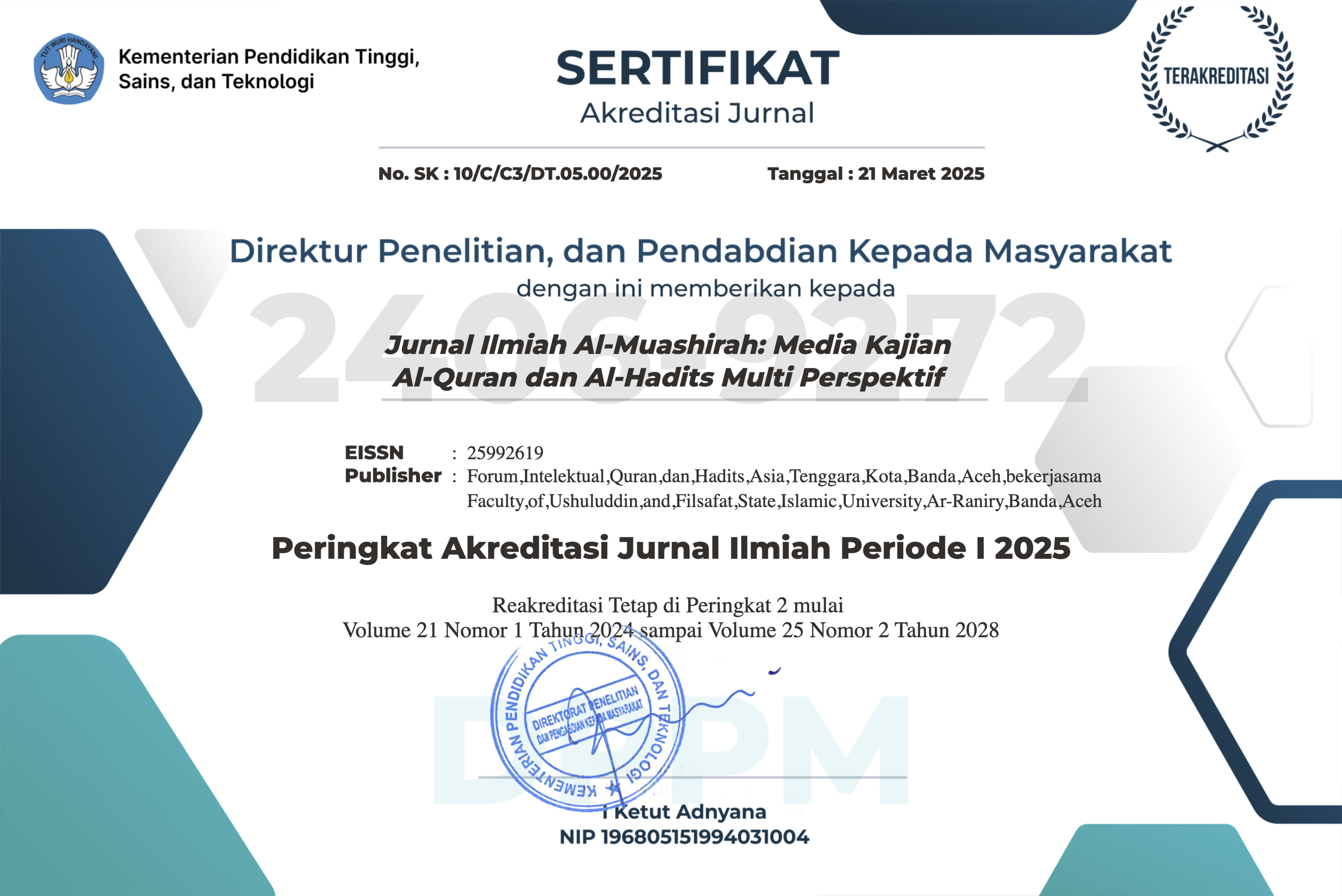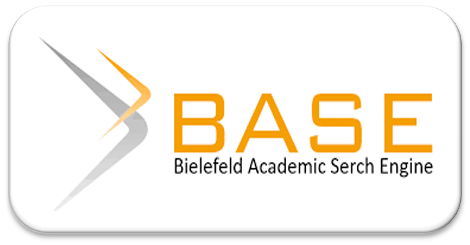PERAN PENALARAN MORAL DALAM PENDIDIKAN AKHLAQ MULIA
DOI:
https://doi.org/10.22373/jim.v14i2.3071Keywords:
Moral, Nalar, al-Qur'anAbstract
Islam is a religion that is very concerned with noble morality. So the main focus of sending the Messenger of Allah to the face of the earth is to perfect human morality. In the view of Islam, a Muslim who has a noble morality will gain happiness in himself and benefit the surrounding community. Among the benefits of noble morality is to strengthen and perfect the religion, facilitate the calculation of charity in the afterlife, eliminating the difficulties of life and survival in the world and the hereafter. One effort to form akhlaqul karimah on learners needed akhlaq education with moral psychology approach. Akhlaq education with psychological approach is an alternative process of guidance and teaching akhlaq to learners with emphasis on moral reasoning, it will manifest students who are able to distinguish the noble akhlaq and akhlaq disgraceful. With moral reasoning is expected learners have the motivation and able to consider the actions taken to be implemented in accordance with the moral values prevailing in society and also has noble morals in accordance with Islamic teachings. Students are able to act intelligently with good deeds and piety.Downloads
References
Abd Wafi, Ijtihad Sebagai Alat Pemecahan Masalah Umat Islam, Jurnal Epistemi, Vol. 8, No. 1, 90-101, 2013.
Al-Aidaros, A.-H. M. H., The Accountant Ethical Code Of Conduct And Moral Reasoning From An Islamic Environmental: Case In Yemen Al-Hasan Mohammed Hasan Al-Aidaros Universiti Utara Malaysia December 2012, Universiti Utara Malaysia, 2012.
Al-Qaradawi, Awlawiyyat al-harakat al-Islamiyyah fi marhalah al-qadimah. Beirut: Mu'assasah al-Risalah, 1992.
Annalakshmi, N., & Abeer, M., Islamic worldview, religious personality and resilience among Muslim adolescent students in India. Europs Journal of Psychology, Vol.7(4), 716–738., 2011.
Arbuthnot, J.B., Teaching Moral Reasoning: theory and practice. New York: Harper and Row, 1981.
Aswati Hamzah, Satu kajian Skema Taakulan Akhlak dalam kalangan pelajar Melayu. Universiti Sains Malaysia.Tesis Doktor Falsafah. (Tidak diterbitkan), 2007.
Ashikin Hamid, N. A., Suryati, L., & Jamil, M. (Khalwat Dalam Kalangan Remaja Di Malaysia Dan Aceh: Kajian Terhadap Pematuhan Syariah. Kanun: Jurnal Undang-Undang Malaysia, No.27, Vol.2, 2015.
Blasi, A., Bridging moral cognition and moral action: A critical review of the literature. Psychological Bulletin, Vol. 88(1), 1-45, 1980.
Brown, J., The role of values education in primary school bullying prevention and mediation. University of Notre Dame Australia, 2014.
Derryberry, P. & Thoma, S., Moral judgment, self-understanding and moral action: The role of multiple constructs. Merrill-Palmer Quarterly, 51(1), 67-92, 2005.
Eisenberg, N., Cumberland, A., Guthrie, I. K., Shepard, S.A., Age changes in responding and moral reasoning in adolescence and early adulthood. Journal of Research on Adolescence, 15(3), 235-260, 2005.
Farid, M., Hubungan penalaran moral, kecerdasan emosi, religiusitas, dan pola asuh orangtua otoritatif dengan perilaku prososial remaja. Disertasi (tidak dipublikasikan). Fakultas Psikologi Universitas Gadjah Mada, Yogyakarta, 2011.
Frimer, J.A. & Walker, L.J., Towards a new paradigm of moral personhood. Journal of Moral Education, 37(3), 333-356., 2008.
Gibbs, J.C., Potter, G.B. & Goldstein, A.P., The EQUIP program: Teaching youth to think and act responsibly through a peer-helping REFERENCES approach. Champaign, IL.: Research Press, 1995.
Hardy, S. A., & Carlo, G. Religiosity and prosocial behaviours in adolescence: The mediating role of prosocial values. Journal of Moral Education, 34(2), 231-249, 2005.
Jahja, A. S., Integritas akademik dalam membangun SDM profesional di perguruan tinggi: Kasus academic dishonesty STIE Perbanas. Jurnal Ilmu Pendidikan, 14(1), 46-61, 2007.
Khafri Hidayat. Pengaruh harga diri dan penalaran moral terhadap perilaku seksual remaja berpacaran di SMK Negeri 5 Samarinda. eJournal Psikologi, 1(1), 80-87, 2013.
Kohlberg, L., & Hersh, R. H. Moral development: A review of the theory. Theory into Practice, 16(2), 53-59., 1977.
Kohlberg, L. Essays on moral development: The philosophy of moral development: Moral stages and the idea of justice (vol. 2). San Francisco: Harper & Row, 1981.
Laible, D. J., Murphy, T. P., & Augustine, M., Adolescents aggressive and prosocial behaviors: Links with social information processing, negative emotionality, moral affect, and moral cognition. The Journal of Genetic Psychology, 175(3-4), 270-86., 2014.
Maliki, S. A., Embong, R., Abdullah, B., Sultan, U., & Abidin, Z. The Ethical Values Based On Maqasid Syariah For Enhancing Self Identity Among Students. In Proceedings of ICIC2015-International Conference on Empovering Islamic Civilation in the 21 Century, 2015.
Mohd Nakhaie Ahmad, Di bawah naungan Islam. Kuala Terengganu: Percetakan Yayasan Islam Terengganu, 1998.
Muawanah Soruso, & Pratikto, H. (Kematangan Emosi, Konsep Diri Dan Kenakalan Remaja. Persona, No.1, Vol.1, 2012.
Paciello, M., Fida, R., Cerniglia, L., Tramontano, C. & Cole, E. High cost helping scenario: The role of empathy, prosocial reasoning and moral disengagement on helping behavior. Personality and Individual Differences, 55(1), 2013.
Reed, A., & Aquino, K. F. Moral identity and the expanding circle of moral regard toward out-groups. Journal of Personality and Social Psychology, 84, 2003.
Rest, J.R., Background: Theory and research. In J.R. Rest & D. Narvaez (Eds.) Moral development in the professions: Psychology and applied ethics (pp. 1-26). Hillsdale, N.J: Lawrence Erlbaum Associates, 1994.
Toha Andiko, Peluang dan tantangan ijtihad dalam pembaharuan hukum Islam, Jurnal Nuansa. Edisi 1, No. 2, September 2010.
Usman, I. (Kepribadian, komunikasi, kelompok teman sebaya, iklim sekolah dan perilaku bulliying. Jurnal Humanitas, No.10, Vol.1, 2013.
Zainudin Sharif & Norazmah Mohamad Roslan. (Faktor-faktor yang mempengaruhi remaja terlibat dalam masalah sosial di sekolah Tunas Bakti, Sungai Lereh, Malaka. Journal of Psychology & Counseling, No.1, Vol.1, 2011.
Downloads
Published
Issue
Section
License
Authors who publish in Jurnal Ilmiah Al-Mu'ashirah agree to the following terms:
- Authors retain copyright and grant the journal right of first publication with the work simultaneously licensed under a Attribution-ShareAlike 4.0 International (CC BY-SA 4.0) License that allows others to share the work with an acknowledgment of the work's authorship and initial publication in this journal.
- Authors are able to enter into separate, additional contractual arrangements for the non-exclusive distribution of the journal's published version of the work (e.g., post it to an institutional repository or publish it in a book), with an acknowledgment of its initial publication in this journal.
- Authors are permitted and encouraged to post their work online (e.g., in institutional repositories or on their website) prior to and during the submission process, as it can lead to productive exchanges, as well as earlier and greater citation of published work (See The Effect of Open Access).













